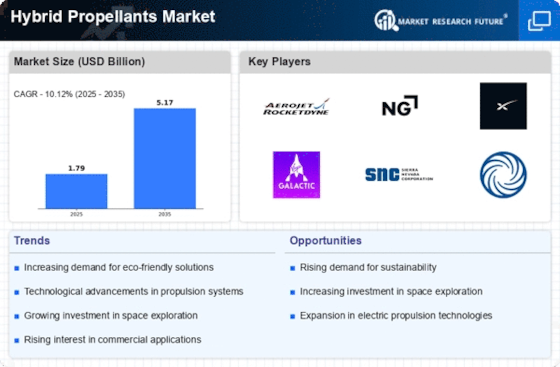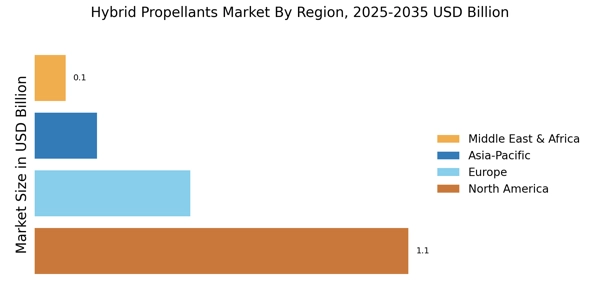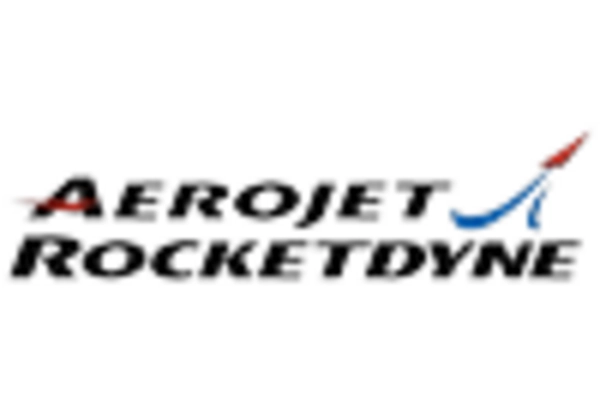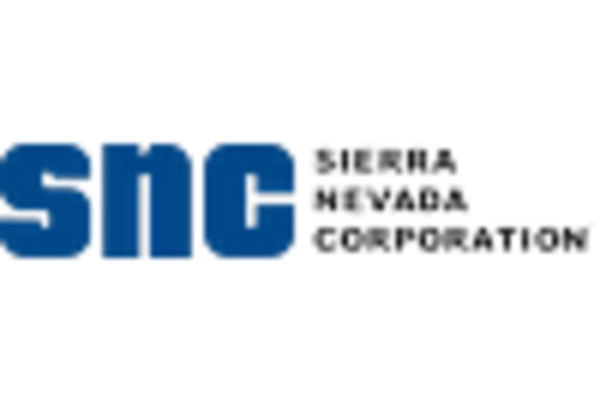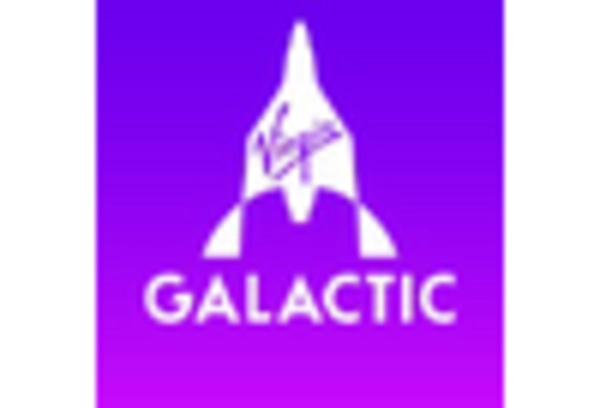Growing Commercial Space Sector
The Hybrid Propellants Market is significantly influenced by the burgeoning commercial space sector. With an increasing number of private companies entering the space industry, there is a heightened demand for reliable and cost-effective propulsion systems. Hybrid propellants, which offer a balance between performance and cost, are becoming increasingly attractive to commercial operators. The commercial space market is anticipated to grow at a rate of 15% annually, creating substantial opportunities for hybrid propellant manufacturers. This trend suggests that the Hybrid Propellants Market will likely expand as more companies seek to leverage hybrid technologies for their launch vehicles.
Enhanced Performance Characteristics
The Hybrid Propellants Market is driven by the enhanced performance characteristics of hybrid propulsion systems. These systems provide a unique combination of high thrust and controllability, making them suitable for a variety of applications, including satellite launches and space tourism. The ability to fine-tune performance parameters allows for greater flexibility in mission planning and execution. As the aerospace industry continues to evolve, the demand for high-performance propulsion solutions is expected to rise. This trend indicates that the Hybrid Propellants Market will likely see increased investment and interest from both governmental and commercial entities seeking to optimize their propulsion capabilities.
Advancements in Propulsion Technology
The Hybrid Propellants Market is poised for growth due to ongoing advancements in propulsion technology. Innovations in materials science and engineering are enabling the development of more efficient hybrid propellant systems. These advancements not only enhance performance but also improve safety and reliability, which are critical factors in aerospace applications. The market is expected to witness a rise in research and development activities, with investments projected to reach approximately 2 billion dollars by 2026. This influx of capital is likely to foster innovation, thereby driving the Hybrid Propellants Market forward as new technologies emerge.
Increasing Demand for Space Exploration
The Hybrid Propellants Market is experiencing a surge in demand driven by the increasing interest in space exploration. As nations and private companies invest heavily in space missions, the need for efficient and reliable propulsion systems becomes paramount. Hybrid propellants, which combine the advantages of both solid and liquid fuels, offer a promising solution for launch vehicles. According to recent data, the space industry is projected to grow significantly, with expenditures reaching over 400 billion dollars by 2025. This growth is likely to propel the Hybrid Propellants Market as companies seek innovative propulsion technologies to enhance mission success rates.
Regulatory Support for Eco-Friendly Solutions
The Hybrid Propellants Market is benefiting from a favorable regulatory environment that increasingly emphasizes eco-friendly solutions. Governments are implementing stringent regulations aimed at reducing carbon emissions and promoting sustainable practices in aerospace and defense sectors. Hybrid propellants, known for their lower environmental impact compared to traditional fuels, align well with these regulatory trends. As a result, manufacturers are likely to invest in hybrid technologies to comply with environmental standards, potentially leading to a market expansion. The market could see a compound annual growth rate of around 5% as companies adapt to these regulations and innovate in the hybrid propellant space.


